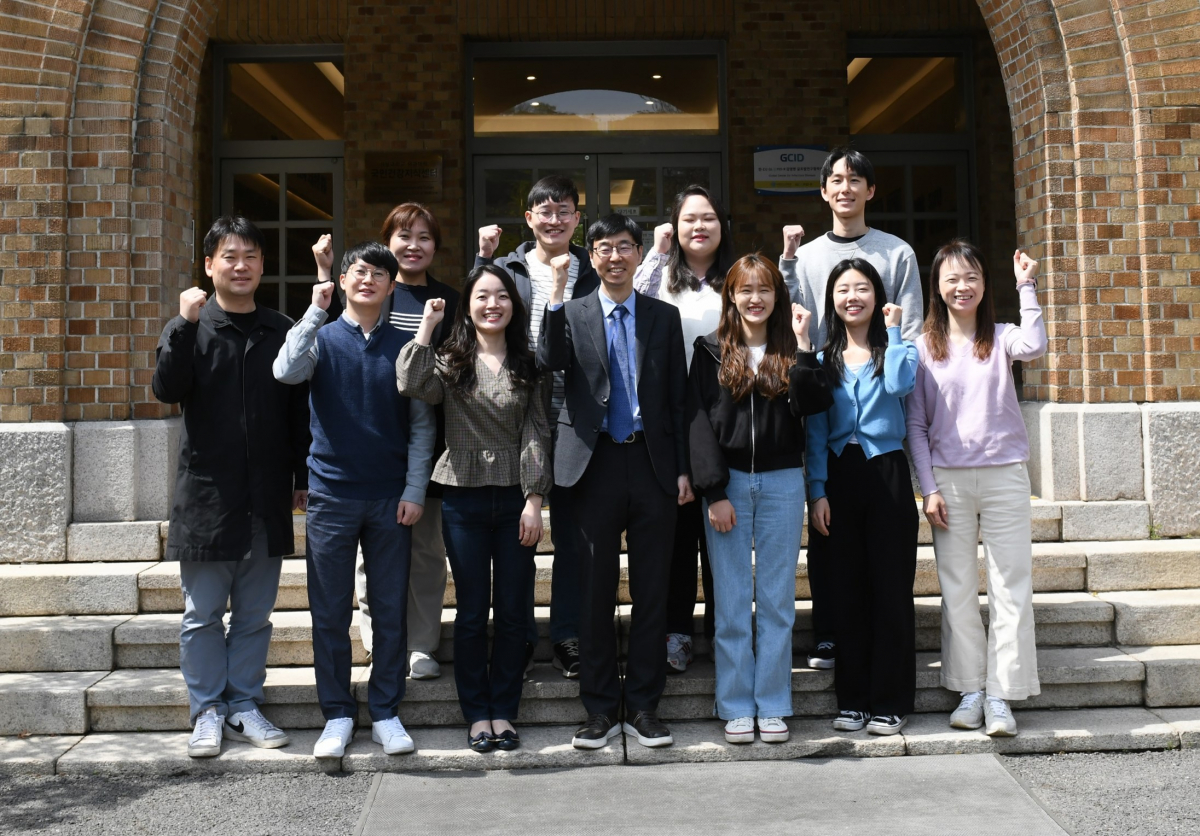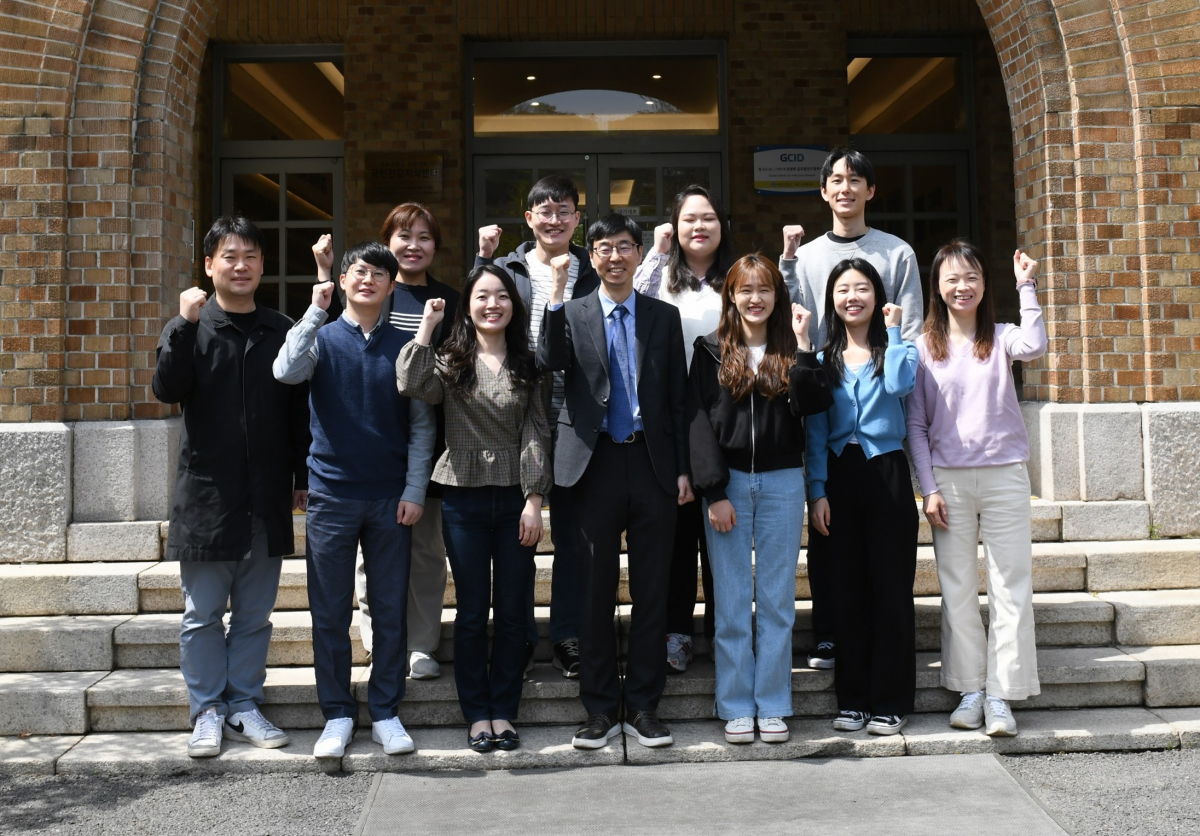
Overview
Laboratory Introduction
Laboratory of Precision and Molecular Oncology
Laboratory of Precision and Molecular Oncology
Our laboratory is composed of professors, researchers, and graduate students belonging to the Department of Biochemistry and Molecular Biology, College of Medicine, Seoul National University. We aim to predict treatment responsiveness according to the patient's genomic characteristics and develop new targeted cancer therapeutics by integrating the cancer genomics, CRISPR screening, study of molecular mechanisms, analysis of patient samples, and research on tumor mouse models.
Related Researcher

Sung-Yup Cho Professor
- Email : csybio@snu.ac.kr
Research topics
- Discovery of genes related to cancer development and therapeutic responsiveness through analysis of cancer genomics - Discovery of genes related to cancer development and therapeutic responsiveness through functional genomics based on genome editing - Study of function and molecular mechanism of cancer-related genes based on molecular and cell biological approach - Study of mechanism of action and validation of targeted therapeutics using patient-derived xenograft mouse models - Prediction of responsiveness to cancer immunotherapy according to genomic alterations and discovery of new cancer immunotherapy targets
Research goals
By analyzing changes in gene mutations and expressions that occur during the development of cancer using omics and functional genomic approaches, we want to discover new therapeutic targets for cancer and conduct research to suggest new treatment strategies for cancer.
Research achievements
Jang G, Oh J, Jun E, Lee J, Kwon JY, Kim J, Lee SH, Kim SC, Cho SY, Lee C. Direct cell-to-cell transfer in stressed tumor microenvironment aggravates tumorigenic or metastatic potential in pancreatic cancer. NPJ Genom Med. 2022 Oct 27;7(1):63.
Oh J, Hwa C, Jang D, Shin S, Lee SJ, Kim J, Lee SE, Jung HR, Oh Y, Jang G, Kwon O, An JY, Cho SY. Augmentation of the RNA m6A reader signature is associated with poor survival by enhancing cell proliferation and EMT across cancer types. Exp Mol Med. 2022 Jul;54(7):906-921.
Na D, Chae J, Cho SY, Kang W, Lee A, Min S, Kang J, Kim MJ, Choi J, Lee W, Shin D, Min A, Kim YJ, Lee KH, Kim TY, Suh YS, Kong SH, Lee HJ, Kim WH, Park H, Im SA, Yang HK, Lee C, Kim JI. Predictive biomarkers for 5-fluorouracil and oxaliplatin-based chemotherapy in gastric cancers via profiling of patient-derived xenografts. Nat Commun. 2021 Aug 10;12(1):4840.
Jung HR, Oh Y, Na D, Min S, Kang J, Jang D, Shin S, Kim J, Lee SE, Jeong EM, An JY, Sung CO, Lee WS, Lee C, Cho SY. CRISPR screens identify a novel combination treatment targeting BCL-XL and WNT signaling for KRAS/BRAF-mutated colorectal cancers. Oncogene. 2021 May;40(18):3287-3302.
Lee SH, Cho SY, Yoon Y, Park C, Sohn J, Jeong JJ, Jeon BN, Jang M, An C, Lee S, Kim YY, Kim G, Kim S, Kim Y, Lee GB, Lee EJ, Kim SG, Kim HS, Kim Y, Kim H, Yang HS, Kim S, Kim S, Chung H, Moon MH, Nam MH, Kwon JY, Won S, Park JS, Weinstock GM, Lee C, Yoon KW, Park H. Bifidobacterium bifidum strains synergize with immune checkpoint inhibitors to reduce tumour burden in mice. Nat Microbiol. 2021 Mar;6(3):277-288.
Oh Y, Jung HR, Min S, Kang J, Jang D, Shin S, Kim J, Lee SE, Sung CO, Lee WS, Lee C, Jeong EM, Cho SY. Targeting antioxidant enzymes enhances the therapeutic efficacy of the BCL-XL inhibitor ABT-263 in KRAS-mutant colorectal cancers. Cancer Lett. 2021 Jan 28;497:123-136.
Park S, Kim TM, Cho SY, Kim S, Oh Y, Kim M, Keam B, Kim DW, Heo DS. Combined blockade of polo-like kinase and pan-RAF is effective against NRAS-mutant non-small cell lung cancer cells. Cancer Lett. 2020 Dec 28;495:135-144.
Cho SY, Chae J, Na D, Kang W, Lee A, Min S, Kang J, Choi B, Lee J, Sung CO, Chuang JH, Lee C, Lee WS, Park H, Kim JI. Unstable Genome and Transcriptome Dynamics during Tumor Metastasis Contribute to Therapeutic Heterogeneity in Colorectal Cancers. Clin Cancer Res. 2019 May 1;25(9):2821-2834.






